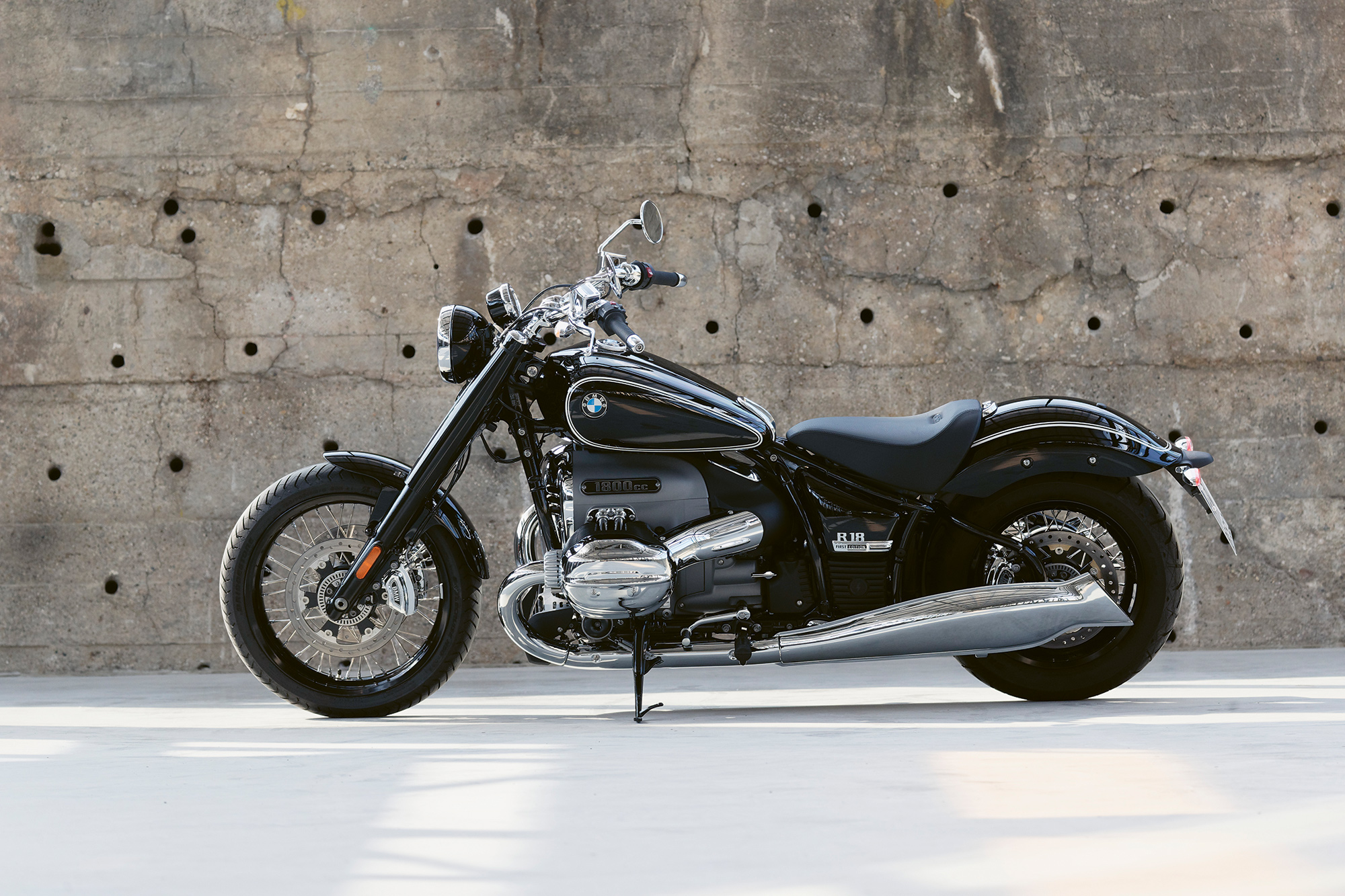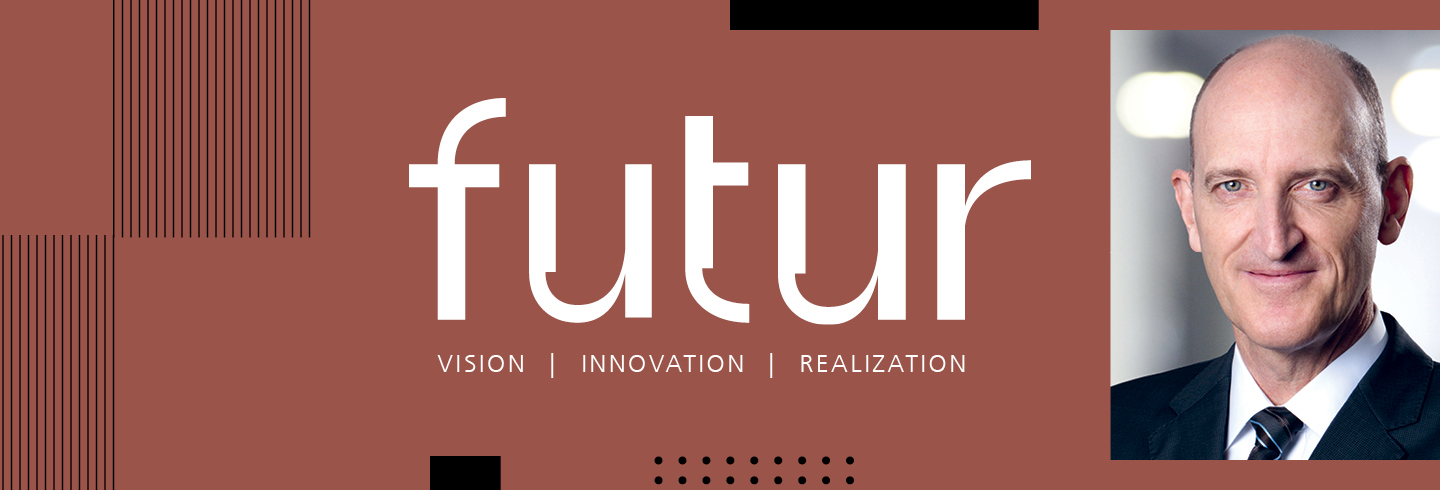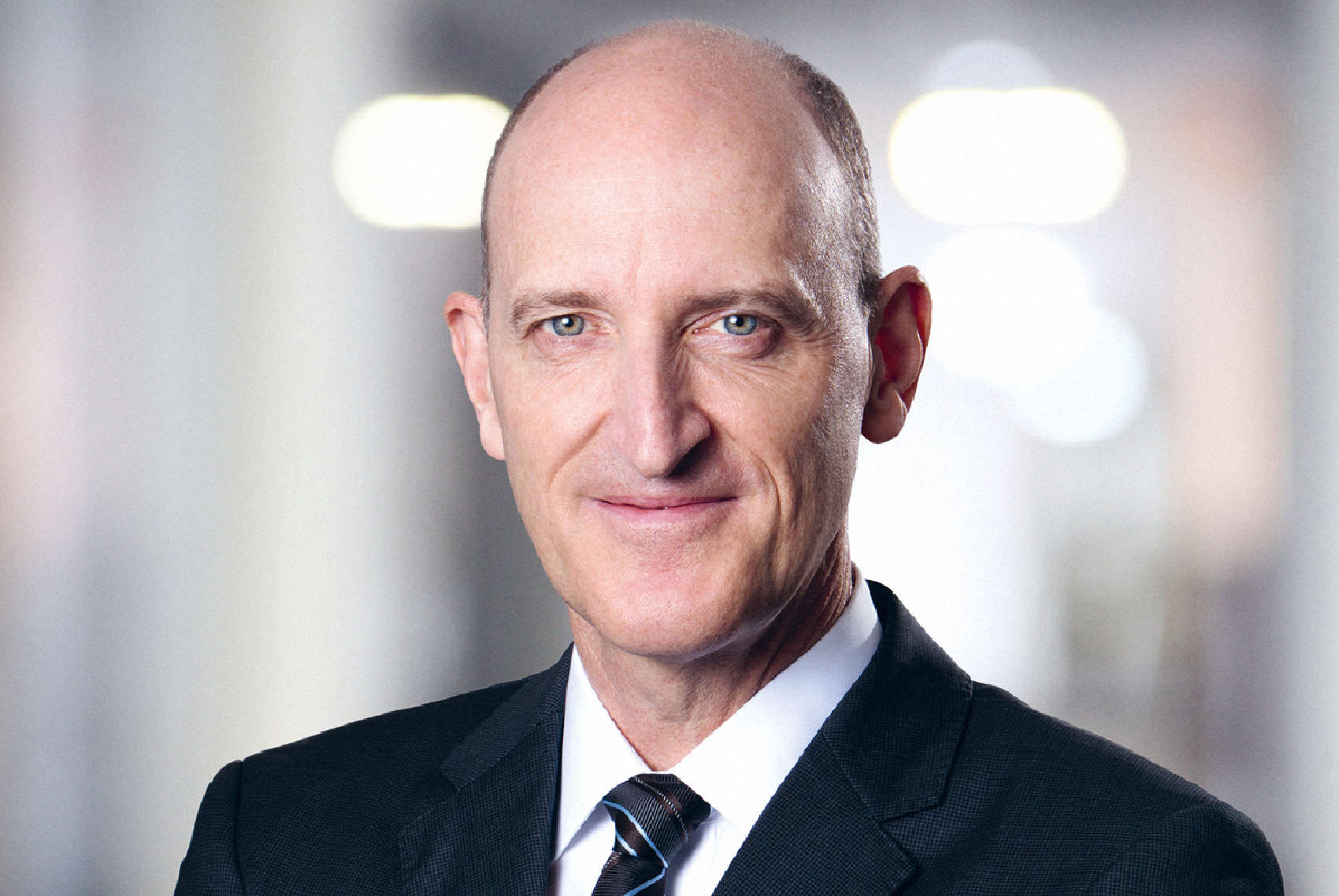Interview with Prof. Dr. Helmut Schramm, Director BMW Group Plant Berlin

futur: Professor Schramm, BMW sold over 50 percent more motorcycles in Germany in July than in the same month last year, and worldwide even more than ever before. And it did so even though you only resumed production at the Berlin plant at the beginning of May after a six-week stop due to the corona pandemic. How did you manage the rapid ramp-up?
Schramm:
We succeeded primarily thanks to the people we have on board. We have an extremely motivated, highly competent, and powerful team, of which I am really proud. Within a very short time, this team restructured all production areas in the facility so that we can work safely despite COVID-19. Not only have we staggered shifts or timed conveyor belts differently, but we have also built hundreds of acrylic glass partitions and 3D printed door handles – all using our very own technologies. Then there are the pragmatic and professional recommendations and directives in our BMW corona manual. As a result, we were able to restart directly in two-shift operations after almost six weeks of shutdown and are now in the fortunate position of producing at full capacity.
futur: Which elements in your value chain do you currently experience as being critical and how do you approach potential problems?
Schramm:
With complex products such as our motorcycles, there is naturally a lot of value creation on the supplier side. We have 900 active suppliers worldwide, including in India, China, Mexico, and Spain, all of whom are more or less severely affected by the corona crisis. In this respect, our production system must work as a whole. And at the moment, I openly admit that this is a major challenge because the conditions in the individual countries are so different. And yet we launched our latest and most important ramp-up this year, the R18, right on time for the SOP, which stands for start of production – despite corona, despite the fact that we had no predecessor vehicle, and despite the high complexity of the vehicle. Thanks to our robust technologies – whether it was engine construction, paint shops, frame construction, or bodywork – it worked perfectly, although it also took a lot of work and energy.
futur: Resilience is considered an indicator of whether and how companies or organizations master difficult situations technologically, socially, and economically. What makes BMW resilient?
Schramm:
The greatest asset of our facility is our employees. Here, we rely on close communication channels, as well as on trust, openness, responsibility, and mutual appreciation. In this way, we motivate our team to react quickly and prudently in the event of such disasters, yet still find creative solutions. The second is our business model in collaboration with our suppliers. Although the pandemic is not over, there are already signs of a slight stabilization in our supply chain, but we are far from out of the woods. That’s why we are strengthening our resources in the individual regions in Asia, America, and Europe so that we can immediately intervene locally, if necessary. At the Berlin plant, we have already enhanced our processes and technologies accordingly in recent years to ensure that they are stable and not prone to disruption. We are also well prepared in terms of flexibility and vertical integration. We have working time models that allow us to operate in different shifts seven days a week, 24 hours a day. This gives us a high degree of flexibility, which, incidentally, we have also agreed on with the employee representatives. In addition, there is our technical flexibility: Together with our suppliers, we can react easily to fluctuations in demand without having to create major redundancies. Together, all these aspects increase the resilience of BMW.
futur: Let’s talk about digitalization: At the Berlin motorcycle plant, you are already making intensive use of Industry 4.0 technologies. Where do you see potential for the future?
Schramm:
Data analytics holds potential of which we are perhaps not yet fully aware. I am certain that one first has to achieve a certain degree of professionalization in this field in order to actually exploit it. It is true that we are already using many standard Industry 4.0 technologies – ranging from the virtual commissioning of systems to autonomously driving robots and predictive maintenance. We also use AI models and train our employees with 3D glasses. With data analytics, however, I believe we could do much more. And we can, also in cooperation with Fraunhofer, take established 4.0 technologies a significant step further. I am thinking of our human-machine-robot collaboration in assembly or of surface design in fine printing. These are technologies we are developing here in Berlin, which we will make ready for series production and which we will subsequently introduce to our Group’s passenger car segment.
futur: BMW has been building motorcycles in Berlin-Spandau – the only location in Germany – since 1969. What role does the Berlin plant play in BMW’s international production network?
Schramm:
In the BMW Motorrad production network, BMW in Spandau is what we call the flagship unit, i.e., the leading plant, and certainly the largest. Another plant in Brazil and one in Thailand also belong to our organization. Both are smaller but highly flexible, very innovative, and produce a wide range of motorcycles. We also have two production partners in India and China, each of which produces starter models. We manage these plants and partners from Spandau as a production network and also control the overall distribution of all vehicles. Then there is our role in the BMW Group. As a production site, we are a link between all plants in the BMW Group’s production network. For example, as already mentioned, we take on technology and research projects from which the entire Group benefits. And we provide resources for the network. This also includes the fact that at BMW, we operate a joint human resources development program, which gives us access to a phenomenal level of expertise. That is also one of our competitive advantages.
futur: What do you expect from Berlin as a business location for the future?
Schramm:
We are very happy and proud to have been here in Berlin for over 50 years now. We feel that we are very appreciated as a partner in Berlin. I say this with all due respect because something like this has to be earned and the city is demanding. But the city also offers a great deal and provides numerous opportunities. Take the university and research landscape, which is second to none. I think Berlin also has what I call a »logistical« attractiveness. And we work very constructively with Spandau’s local political representatives and Berlin’s state political representatives. I appreciate that very much and I would like to take this opportunity to thank them. But what is most important here are the people, the style, the geniality, the honesty, the down-to-earth mentality, and the expertise of the people in Berlin and Brandenburg. After all, many of them work for us, and BMW Motorrad would not be the same without them. That’s why I am very pleased that we are bringing the legendary BMW Motorrad Days from Bavaria to Berlin and Brandenburg next year, as another commitment on our part to the region.
 Fraunhofer Institute for Production Systems and Design Technology
Fraunhofer Institute for Production Systems and Design Technology
